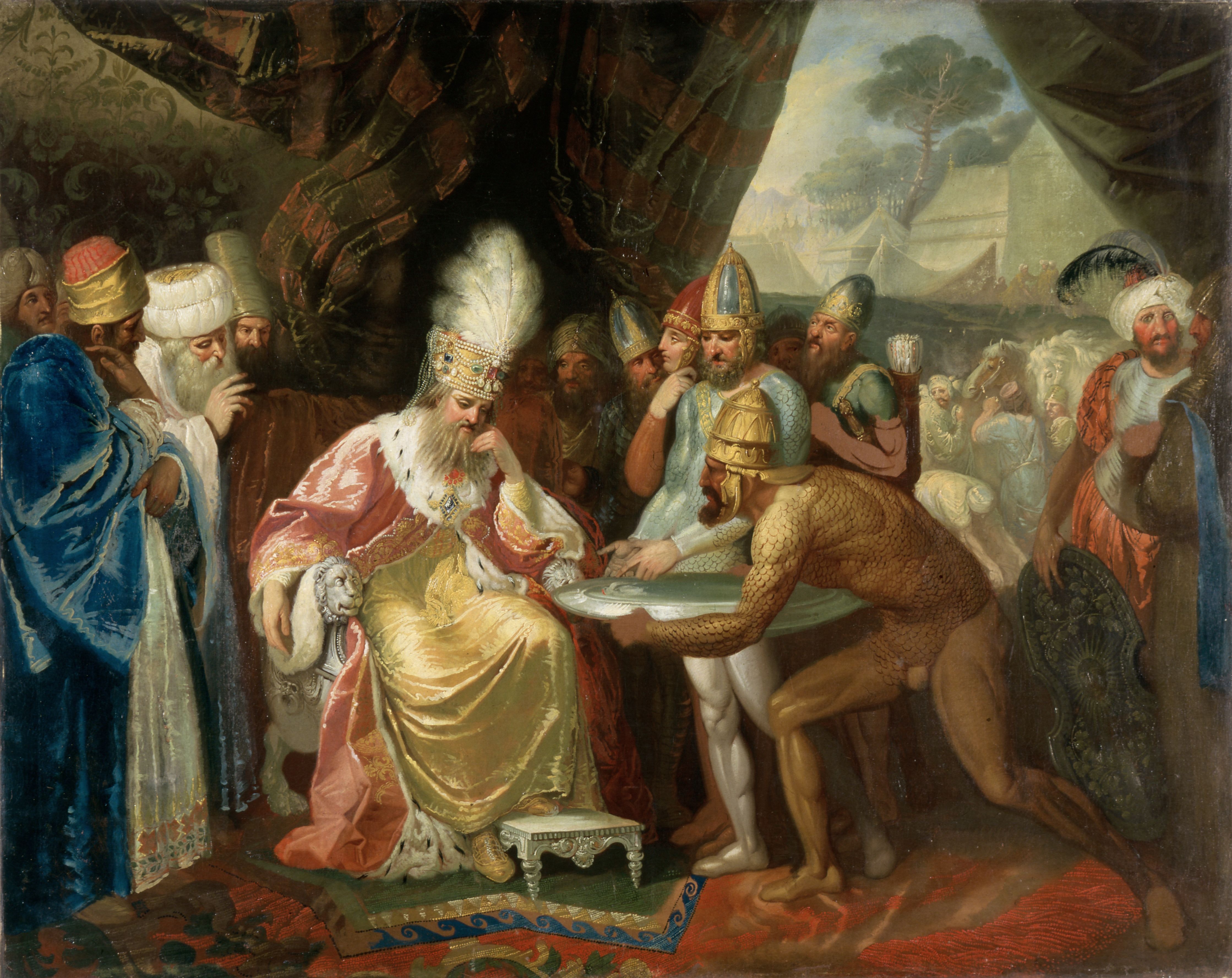Meaning of Hampers: Along with Ideas and Differences with Parcel
What is the meaning of hampers? Is it similar to a parcel, or different? Here is the meaning of hampers along with the differences with parcel and unique and trendy hampers ideas.

Kapanlagi.com - The term 'lord' seems to no longer be unfamiliar in Indonesia. The term that often appears in films or kingdom-themed series has even been adopted by Indonesians in daily conversations. As a result, the meaning of 'lord' has undergone a shift.
In conversations on social media, the meaning of 'lord' is even parodied as 'lurd', which means 'sedulur' or 'brother'. Yes, language development is indeed so dynamic that it continues to evolve with the times.
Now, for those of you who are curious about the meaning of 'lord' in various uses, please read the following information. It contains explanations about its history, its use in various contexts, including slang, and this information is interesting to explore.

Meaning of lord (Credit: Unsplash)
According to Oxford Languages, the meaning of lord is someone or something that has great power, authority, or influence. In short, lord refers to a master or ruler.
Furthermore, the meaning of lord can also be seen as an emphasis for expressions of surprise or concern. This term can be interpreted broadly depending on the context of its usage.
Etymologically, the term lord can be traced back to Old English "hlaford" which originated from "hlafweard" meaning "bread guardian" or "bread steward." The meaning of "hlafweard" reflects the customs of Germanic tribes where the head of the tribe provided food for their followers.
This title is usually bestowed upon males. However, the equivalent term for females is "lady." Despite this, Queen Elizabeth II holds the title of Lord of Mann and female mayors in England hold the title of Lord Mayor.
This means that the title of lord is not limited to gender. The aforementioned women serve as evidence that the title "Lord" is not exclusively for males.

The use of the term lord (Credit: Unsplash)
As mentioned above, there are many meanings of lord that you can understand. The interpretation depends on the context of its usage. Therefore, please refer to the following uses of lord in various contexts.
Nobility
The term lord in the context of nobility has several equivalents in European culture. For example, there is the term from France, Mon Seigneur, which is a shortened form of Monsieur derived directly from the Latin word seniorem, meaning "leader, senior".
Other loan words also appear, such as "Signore" in Italy and "Senor" in Spain. Meanwhile, the equivalent of lord in Javanese is "Gusti".
Feudalism
In the feudal system, the meaning of lord is free, broad, and varied. For example, there is the term overlord used to refer to a lord whose land is managed by a lord of lower rank.
Furthermore, there is the term "landlord" used as an honorary title that indicates social status. If ranked, the landlord is subordinate to the overlord, and the overlord is subordinate to the king.
Religion
In the context of religion, the term lord is used as a title for God. In English, the term lord is often used to translate the word "rabb" from Arabic.

History of the lord's call (Credit: Unsplash)
After understanding the meaning of lord in various contexts, understanding its history will also be an interesting thing. This history refers to the title lord in England.
In the past, in the islands of England, the title lord was a common title for princes or rulers. This title was used before someone obtained the title "prince". At that time, the king's son was called with the title "Lord Ferename".
In addition, the title lord was used as an alternative for the noble descendants of Marquess, Earl, or Viscount. However, the title lord was always used by the noble title of Baron.
Nowadays, the title Lord is used to indicate members of the House of Lords or the National Council, which is the upper house in the British parliament. Not only that, some high-ranking cabinet officials also use the word lord as the beginning of their title in the government.
Currently, the title lord is also used in bishoprics. A bishop will be given the title lord before their name. However, its usage is certainly different from the designation for English nobles. Not only that, the title lord in the form of the address "My Lord" is also used by high court judges in England and some positions in Scotland.

Lord Adi (Credit: Instagram/ adi_masterchef_fanbase)
If we follow the definition above, the term lord may seem sacred and serious. However, as time goes by and people become more free in using this term, its meaning has shifted. In fact, now the meaning of lord can be used for jokes.
You can easily find mocking expressions or ironic jokes in the comment section of various social media. Usually, this nickname is given to someone who is confident but fails to meet expectations. In short, this term is commonly used to mock people who act superior.
However, the meaning of lord in slang doesn't always have a negative connotation. For example, the title of lord was given by netizens to Adi or Suhaidi Jamaan when he was a participant in MasterChef Indonesia season 8. The title was given because of Adi's skill in completing every challenge given by the judges.
When Adi came out as the third winner in the competition, even the hashtag with his name and the title lord became trending on Twitter. Once again, the interpretation of this title in slang still needs to consider the entire context.
KLovers, that's the explanation of the meaning of lord in various usage contexts along with its history that you need to know.
(kpl/gen/ans)
Cobain For You Page (FYP) Yang kamu suka ada di sini,
lihat isinya
What is the meaning of hampers? Is it similar to a parcel, or different? Here is the meaning of hampers along with the differences with parcel and unique and trendy hampers ideas.
Usually, the term 'nolep' appears in a joking situation. So, what is the actual meaning of nolep?
Fabiayyi Ala Irobbikuma Tukadziban is a fragment of a verse from Surah Ar Rahman. But do KLovers know the meaning of Fabiayyi Ala Irobbikuma Tukadziban? Here is the meaning of Fabiayyi Ala Irobbikuma Tukadziban, along with its purpose and benefits.
For those of you who rarely open social media, you may wonder about the meaning of ngab. This is because the slang words on social media keep evolving with various variations. So, to understand its meaning, let's directly read the following explanation.
When talking about popular social media, Instagram cannot be missed. Until now, Instagram has more than one billion users. With its increasing popularity, it is natural that you want to know how to register for Instagram as follows.
There are some of us who are curious about deleted chats and want to know how to find deleted WhatsApp chats. Here's how to find deleted WhatsApp chats, whether using an application or through the Notification Log.
Not only using PCs and laptops, we can also resize photos using mobile phones. Here's how to resize photos on mobile phones without complicated applications.
There are various popular Japanese words that come from anime, manga, or movies. Like the meaning of ara ara, it is very trendy in the anime lovers community. Check out the review, KLovers!
What is the true meaning of a name? A name is part of a person's identity. Check out the explanation below.
How to take a screenshot on a Samsung phone can be done very easily. Check out the following review.
Video calling on Whatsapp can be easily done on a laptop, just like the mobile version. Moreover, users can also customize the screen display while making video calls on Whatsapp on a laptop. Check out the review, KLovers!
The meaning of menstruation is also known as menstruation or commonly known as a period. Not only according to medical science, there is also a meaning of menstruation based on popular myths. Let's take a look, KLovers!